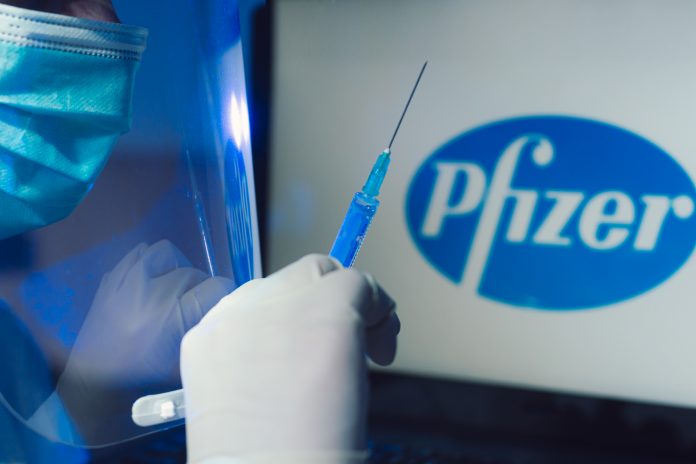A new study has found that the second dose of the Pfizer vaccine produces a 3.5-times greater antibody response when given at 12 weeks, compared to three weeks
Researchers from the University of Birmingham, in collaboration with Public Health England, have found that extending the second Pfizer vaccine dose interval to 12 weeks increases the SARS-CoV-2 antibody response 3.5-fold in people over 80.
The team analysed blood samples from 175 participants, aged 80 and over, after their first Pfizer vaccine and then again two to three weeks after they had received their second vaccine.
Spike-specific antibodies
Of the cohort, 99 participants had the second vaccine at three weeks and 73 had the second dose at 12 weeks.
After their second vaccine, spike-specific antibodies were detected in all participants, however, the average concentration of antibodies was 3.5 times higher in the 12-week interval group (4,030 U/ml) compared to the three-week interval group (1,138 U/ml).
Cellular response
Within the three-week interval group, 60% had a confirmed cellular response at two to three weeks following the second vaccine, although this fell to only 15% eight to nine weeks later.
The proportion of participants showing a cellular response in the 12-week interval group was only 8% at five to six weeks after the first vaccine and this rose to 31% two to three weeks after the second vaccine.
First author Dr Helen Parry, at the University of Birmingham, said:
“SARS-CoV-2 vaccines have been remarkably effective in providing large-scale protection against infection and symptomatic disease – but many questions remain regarding their optimal delivery for provision of effective and sustained immunity.
“This is the first time antibody and cellular responses have been studied when the second vaccine is given after an extended interval. Our study demonstrates that peak antibody responses after the second Pfizer vaccine are markedly enhanced in older people when this is delayed to 12 weeks.
“This research is crucial, particularly in older people, as immune responses to vaccination deteriorate with age. Understanding how to optimise COVID-19 vaccine schedules and maximise immune responses within this age group is vitally important.”
Corresponding author Professor Paul Moss, at the University of Birmingham and principal investigator of the UK Coronavirus Immunology Consortium, added:
“The enhanced antibody responses seen after an extended interval may help to sustain immunity against COVID-19 over the longer term and further improve the clinical efficacy of this powerful vaccine platform.
“Our research findings may be important in the development of global vaccination strategy as extension of interval of the second vaccine dose in older people may potentially reduce the need for subsequent booster vaccines.”
Dr Gayatri Amirthalingam, Consultant Epidemiologist at PHE, said:
“The higher antibody responses in people receiving two doses of the Pfizer vaccine using an extended 12-week interval provides further supportive evidence of the benefits of the UK approach to prioritise the first dose of vaccine. This analysis shows better antibody responses in those receiving their second dose at 12 weeks compared to the standard three-week schedule.
“It is vital that you take up the offer of vaccination as it is the best way to protect yourself and your community and to help us out of the pandemic.”
Professor Moss added:
“Taking a collaborative approach to research through the UK Coronavirus Immunology Consortium and National Core Studies has allowed us to drive forward our knowledge at an incredible pace and build our understanding of how different components of the immune system respond to COVID vaccines. This knowledge will allow us to optimise vaccination protocols and maximise protection against SARS-CoV-2 within our population.”
The study is supported by the UK Coronavirus Immunology Consortium and was jointly funded by UK Research and Innovation and the National Institute for Health Research and supported by the British Society for Immunology.











